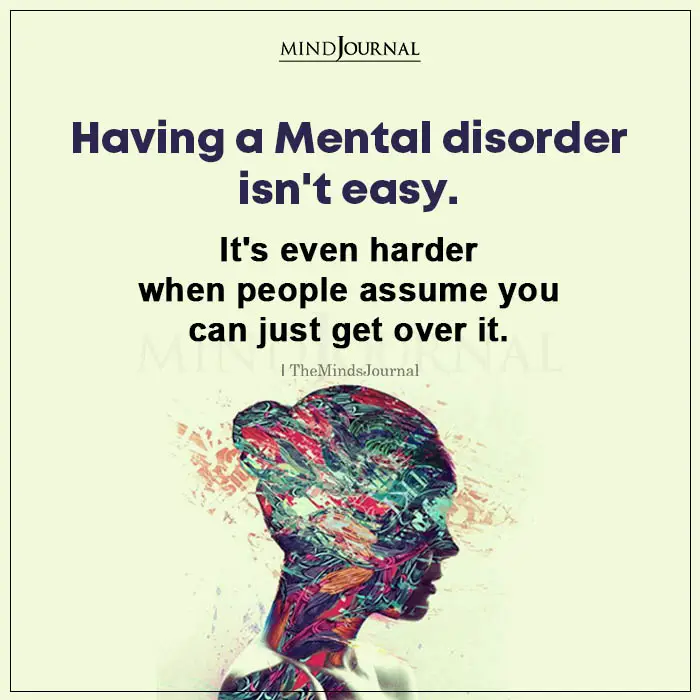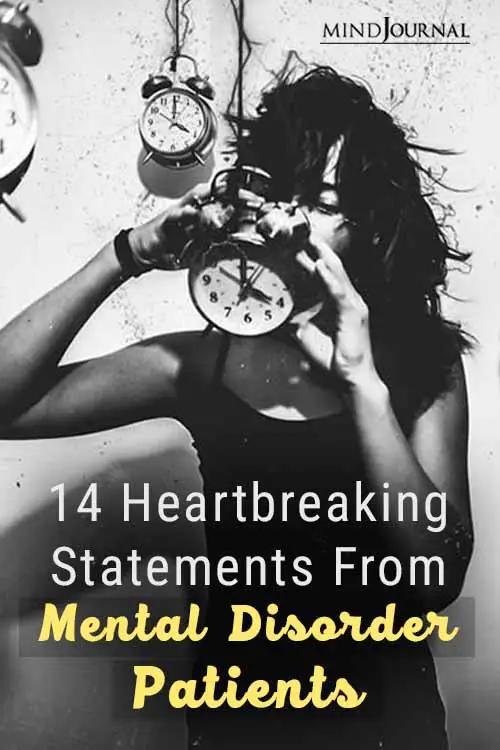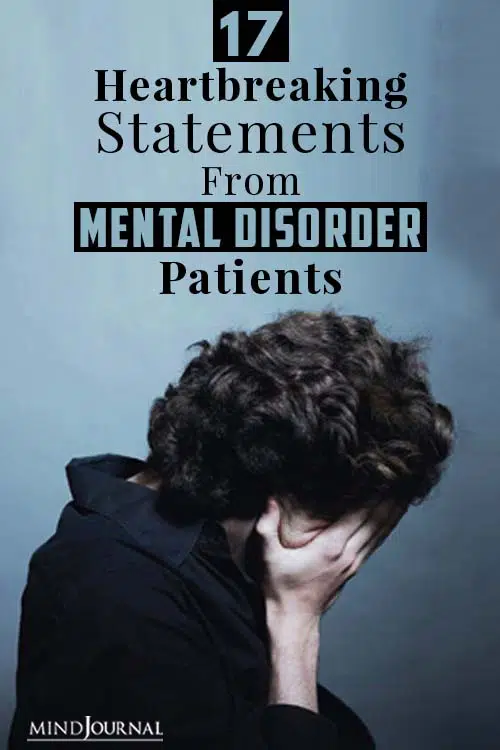Definition of health is complete only when mental health is also included. Today, mental disorders cannot be considered as a rare occurrence, as many of us are dealing with mental illness, where some tend to be vocal about it, and some keep it to themselves. Mental Disorder is associated with distress and/or problems functioning in social, work, or family activities which can be triggered by any circumstances.
According to WHO, Mental, neurological, and substance use disorders make up 10% of the global burden of disease and 30% of the non-fatal disease burden.
In this article, we have accumulated some phrases from the persons who have dealt with this disorder and agreed to share their personal experiences. What does it feel like inside your head? What does it make you feel?
These are the responses of people who have recovered from or are going through, mental illness.
How is it to live with a mental disorder?
1. “I don’t wanna kill myself. I wanna kill the part of me that wants to kill myself.”
2. “People don’t do drugs to feel good. People do drugs to feel less bad.”
3. “Imagine if every small decision felt like it had life or death consequences.” – From a patient describing living with an anxiety disorder.
4. “My arms miss you.” – From a ten-year-old autistic boy asking for a hug.
5. “Feeling pain is better than feeling nothing.”
6. “It’s okay if I don’t have any friends. Having friends makes you happy but it doesn’t make you a good person. Do you know who was really popular? Hitler.” – From a child with autism who was struggling with her difficulty making and keeping friends.
7. “I feel like a ghost, walking around unseen in the backdrops of these other happy lives.” – From a 56-year-old alcoholic.
8. “It’s as if you’ve tripped and the moment where you don’t know if you are going to catch yourself or not. That’s how I feel all day.” – From a patient with Generalized Anxiety Disorder
Related: Signs And Symptoms Of Generalised Anxiety Disorder
9. “We spend our whole lives trying to get to a certain place or acquire certain things so that we may be happy. But true happiness is when you realize you are never going to get to that place or that even when you do you will still be dreaming of a new place or new things. So happiness has to start now, with what we have.” – From a patient recovering from body image issues.
10. “I like you, Jace, I don’t care what my voices say about you.” – From a client with Schizoaffective disorder.
11. “I don’t take my meds to fix me, because there’s nothing wrong with me. I take them because everyone else is crazy and I need to fit in.” – From a patient with Bipolar disorder at a nursing home.
12. “I guess I missed the transition from when the ground was lava and imaginary friends became schizophrenia.”
13. “The medication made the voices go away. I’m lonely now.”
14. “I didn’t care about life, I didn’t care about dying, or anything” – That came from a 14-year-old mental disorder patient.
15. “I don’t I have any reason to feel the way I feel, because I’ve not had any significant life events that triggered it, it was just everyday life”
16. “Having anxiety feeling like a million bubbles filled with things that could go wrong that are pushing on me, and each bubble is filled with something that could go wrong”.
17. “They assume if you cannot see it, it’s not really there” – Says a schizophrenic patient.
These revelations and descriptions of what it’s like to live with a mental disorder are from the really “strong” persons who want to lead productive and happy lives with the help of social support, encouragement, and the treatment that they deserve.
Don’t be afraid to speak openly about your mental health and if you need help, today, there are new tools, treatments, and various support systems for you to overcome the stigma. Remember, you are not alone.











Leave a Reply
You must be logged in to post a comment.